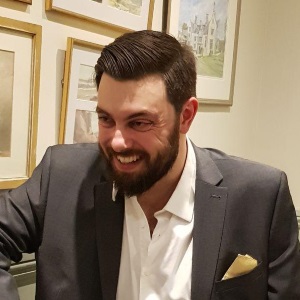Over the 2020 Christmas period, I started a journal. I’ve been intrigued by this for quite a while but I’ve never properly committed. I looked into different journalling techniques: I tried bullet journalling, I tried using writing prompts, I tried all sorts. Nothing stuck. This time, I simply opened a blank page, turned off all distractions, and waited to see what would happen.
All manner of ideas, worries, concepts, and memories left my head, dancing across the page in some intense, interpretative performance. Things I thought I’d forgotten, things I didn’t realise were frustrating me, things I didn’t even notice that I was thinking about. It was genuinely eye-opening. I finally started to understand why I felt the way I did on this day or that day. I’d connected my subconscious directly to the keyboard and became my own experiment.
Most of these thousand-word brain-dumps manifested with a surprising degree of organisation. I expected them to be chaotic streams of consciousness that would ultimately embarrass me (I’m somewhat of a perfectionist, you see) but my language usage was quite advanced considering the circumstance. Some things were funny, others were downright poetic, others still carried me off into reverie.
In fact, I was slightly unnerved. Surely I shouldn’t be surprised by images I’d conjoured myself? Surely I shouldn’t be surprised by any of this: I wrote it! It felt like I was watching someone else working, like I was reading someone else’s report on me, but written in the first person.
Steven Pressfield’s the War of Art likens inspiration to being visited by the Muses. He puts two concepts on display in his diorama of the creative process: the Muses and the Resistance. I’d felt the effects of the latter often—usually manifesting in stalling perfectionism—but I can’t remember feeling the former so intensely. He describes being “in the zone” as transcribing what the Muses whispered into his ear. I felt something similar when writing this time around. And I liked it.
An important difference between his context and mine is that I wasn’t creating for an audience larger than myself. There’s far less pressure this way, so the Resistance mostly left me alone; and with no one else to pass judgement, my perfectionism almost evaporated. But judging the writing was never the point: analysis was.
As my mind spewed forth my half-reasoned calculi or dredged up things I thought I’d long forgotten, I learned about what I really wanted to do. Things I wanted to achieve versus things I felt like I should achieve. I learned what mattered to me and what didn’t, what I obsessed over, what I enjoyed thinking about, what annoyed me. I thought I knew myself before, but it seems that me, myself, and I were merely strangers in the same house.
I tried journalling for 30 days and I found myself.
Platitudinous? Perhaps, but there’s truth in it. Try journalling for 30 days yourself. Without structure, without prompts, and without distraction. You’ll probably find yourself too.
